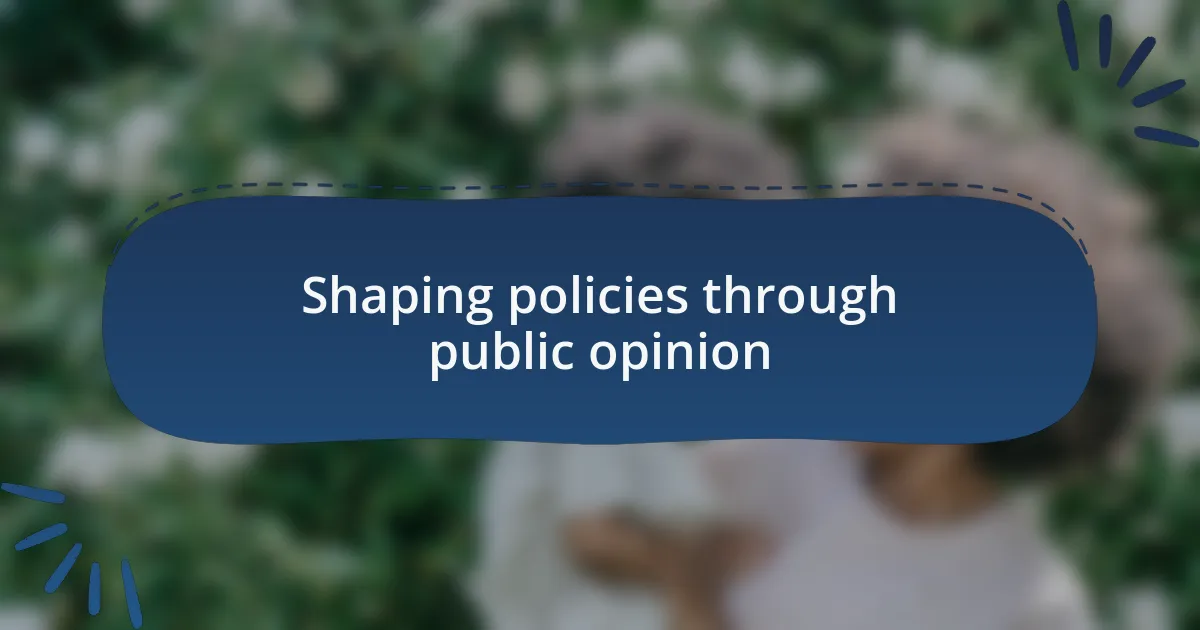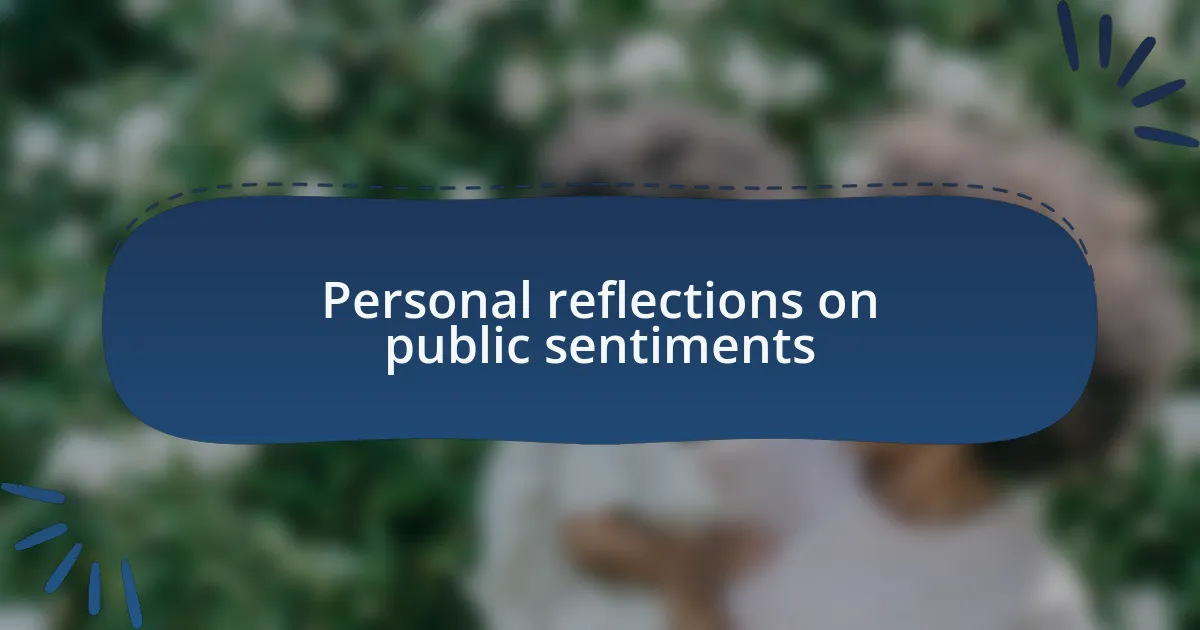Key takeaways:
- Public opinion significantly influences child safeguarding policies, compelling lawmakers to act based on community concerns.
- Emotional stories shared in community settings can foster empathy and drive collective action towards safeguarding initiatives.
- Community sentiment reflects shared values, highlighting child welfare as a communal responsibility and guiding legislative priorities.
- Engaging with public sentiment can transform individuals into proactive advocates for child safety issues, influencing personal and collective responsibilities.

Shaping policies through public opinion
Public opinion plays a crucial role in shaping policies, particularly in the realm of child safeguarding. When I reflect on local community meetings, the passion of parents and advocates is palpable. Have you ever witnessed how a single voice can spark a wider conversation? It’s remarkable to see how collective concern over child welfare can compel lawmakers to take action.
Consider this: when parents voice their fears about safety in schools, it often leads to significant policy reviews. I remember a time when a community’s outcry over inadequate playground safety regulations led to a swift reconsideration of those policies. That incident really underscored for me how public sentiment is not just noise; it can drive tangible change, compelling policymakers to listen and act.
Moreover, public opinion can serve as a barometer for what our society deems acceptable for our children. I often find myself pondering how our conversations shape not just policies, but the very culture of safeguarding. Isn’t it interesting how each opinion reflects our shared values? In this way, the voices of the community can become a guiding force, ensuring that child safeguarding remains a priority in our legislative landscape.

Personal reflections on public sentiments
Public sentiment often feels like an undercurrent, shaping our collective consciousness without us fully realizing it. I vividly recall attending a school board meeting where a parent shared a deeply emotional story about their child’s experience with bullying. The way that heartfelt testimony shifted the mood in the room was palpable; it reminded me that our stories have the power to capture attention and foster empathy. Have you ever experienced a moment where a shared narrative connected people in a profound way? It’s those moments that illuminate the importance of public sentiment in influencing decisions.
I often find myself reflecting on the overwhelming support for various child safeguarding initiatives that emerge from community concerns. During a local fundraiser for children in foster care, the sheer generosity of our community struck me. People came together, driven not only by empathy but by a shared understanding that safeguarding children is a communal responsibility. How often do we take a step back to acknowledge the connections that bind us in these efforts? It’s fascinating to realize that our individual sentiments can collectively create a powerful force for change.
Emotional responses to child safeguarding issues can sometimes ignite a fire within us. I remember hearing about a campaign urging stricter regulations for online child safety, and it hit close to home. I couldn’t help but think about how many children are unprotected in the digital realm. This realization pushed me to engage more actively in discussions about internet safety. Isn’t it remarkable how public sentiments can ignite personal responsibilities and encourage us to become advocates for children in our communities? Engaging with our feelings not only helps shape policies, but it can also transform us into more proactive citizens.